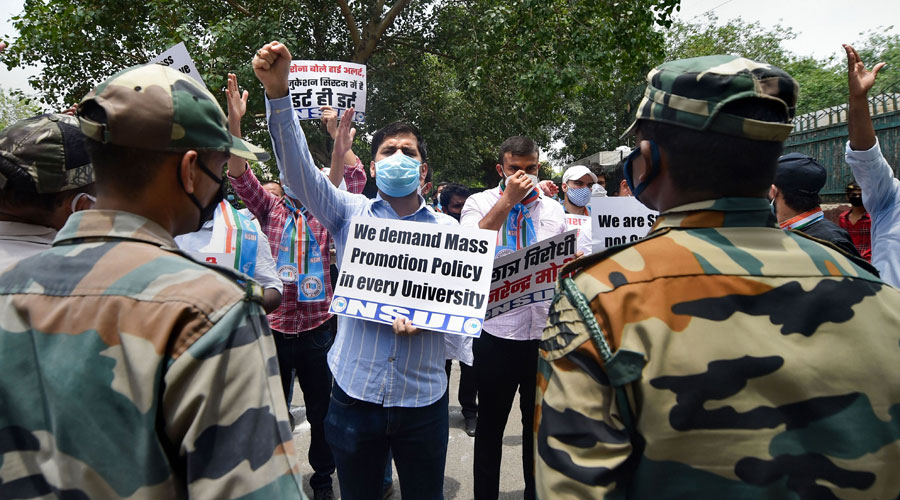The Central Board of Secondary Education has cancelled the board examinations for Class X and XII in the light of the pandemic. The Supreme Court has given its nod to the decision. Students will now be marked under a special — convoluted? — scheme: those who sat for more than three subjects in the now aborted board exams will be scored on the best three performances; those who finished three subjects will be judged on the basis of the two best performances; students who have taken only two papers will be marked on their performance in those as well as internal assessments. It is true that such an unprecedented system of assessment has been necessitated by the pandemic — the CISCE will announce its own evaluation formula and the UGC will release the revised guidelines on exams and admissions. But educators have rightly expressed concern about the resultant anomalies. Internal assessments are held under far less stringent conditions than board exams, and their marking structures are also considerably lenient. Should the current crisis then be treated as an opportunity to rethink a model of assessment that no longer reflects merit?
This eagerness to link marks with merit is one of the problems of the present system. It undermines the meaning and quality of education where the emphasis is on memorization and regurgitation of sterile information from textbooks rather than developing critical thinking among students. The National Curriculum Framework, 2005 rightly underlined that education should ideally produce knowledge societies. There is a strong case for reforming the assessment structure so that it tests, not rote-learning but, knowledge. The impasse should also be used to consider whether the examination system can be made more sensitive to different kinds of learners and learning environments — the lockdown and consequent demand for an online curriculum have revealed just how skewed education can be in favour of privileged students. An ossified system of marking can freeze educational progress.











